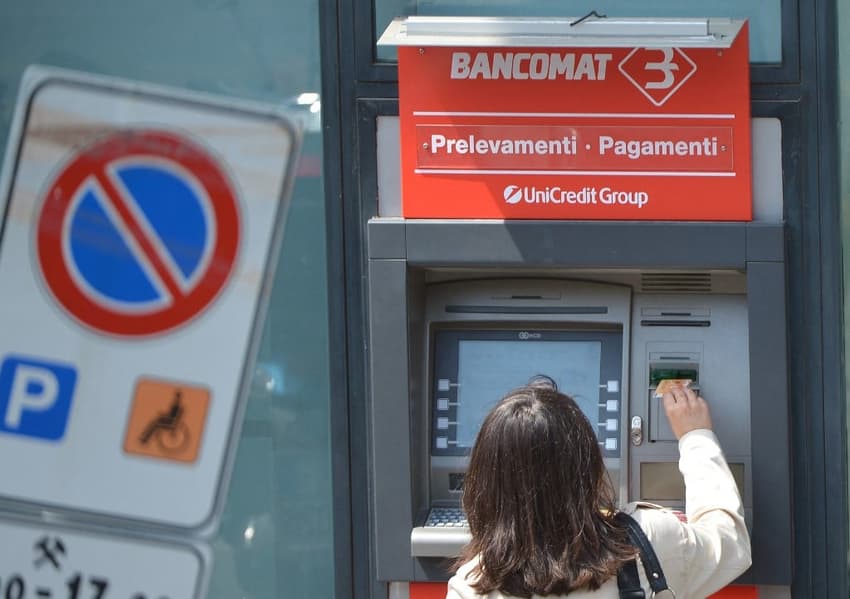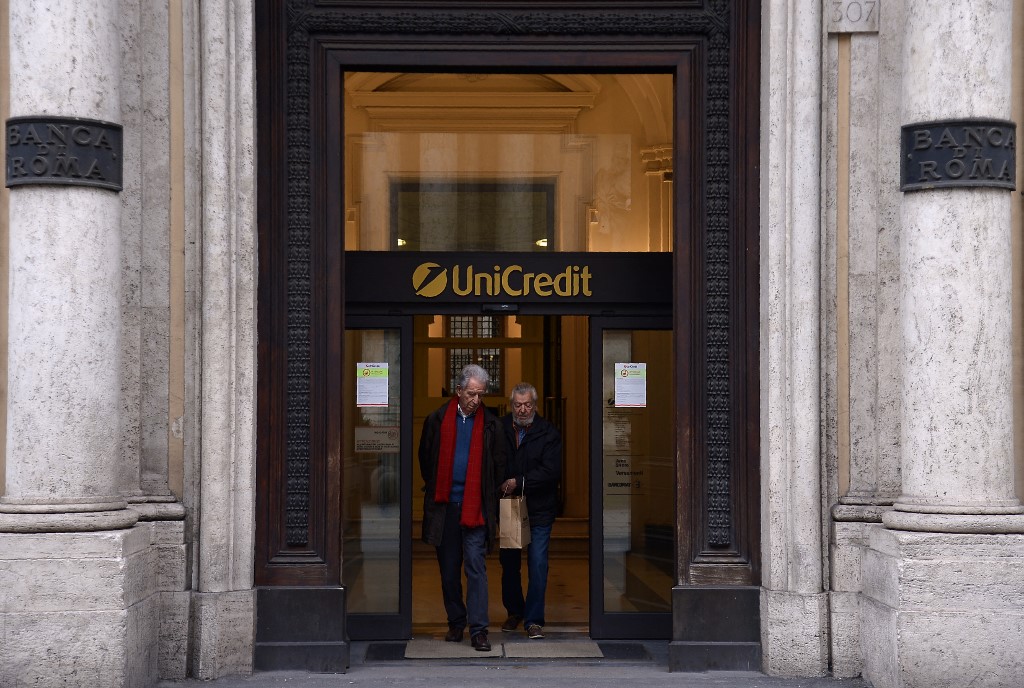Reader question: Which documents do I need to open an Italian bank account?

An Italian bank account will be essential if you live in Italy, but there’s often confusion about which documents applicants need to produce.
Question: “I need to open an Italian bank account, but I’ve been told different things about the type of ID and other documents I’ll need. What are the rules?”
If you’re planning on moving to Italy, opening a bank account will be one of the very first things you’ll have to do once you’re in the country.
Overseas accounts (especially those from outside the eurozone) are unlikely to cut it for everyday tasks like paying bills and taxes, receiving an Italian salary and taking out insurance. Italian authorities often require an account with an Italian IBAN number for these purposes.
On paper at least, Italy has no major limitations over who can open an account with a local bank.
Any foreign national aged 18 or over can open a bank account in Italy, though the full range of account types (from regular bank accounts, or conti correnti, to savings and deposit accounts) is generally only available to legal residents.
READ ALSO: What you need to know about opening a bank account in Italy
Foreign nationals that don’t enjoy residency status under Italian law (i.e. anyone who spends less than 183 days a year in the country) can usually only open international accounts (conti internazionali or conti correnti per residenti stranieri), which grant access to basic banking services.
The documentation required to open both resident and non-resident accounts tends to vary from bank to bank, and at times even from branch to branch.

There is often little clarity over which documents applicants need to produce to open a bank account in Italy. Photo by Filippo MONTEFORTE / AFP
That said, the following documents are generally necessary when opening a resident account:
- A valid identification document (usually a passport or national identity card)
- An Italian tax code (or codice fiscale)
- Proof of address (like a bill or piece of certified mail)
- A copy of your residency permit if you’re a non-EU national
- In some cases, proof of employment or enrolment in an Italian education institution
For corporate accounts, additional documentation is required, including the relevant company registration certificate and financial records.
For further information about which documents you’ll be asked to submit and how, you are advised to get directly in touch with the chosen bank.
Do I need an Italian-issued ID document to open an account?
Some readers of the Local have previously reported being turned down by local banks because they did not have an Italian-issued ID document.
Unless the type of account applied for specifically requires the applicant to produce an Italian-issued ID document, any refusal on these grounds should be seen as suspicious, at the very least.
READ ALSO: Which Italian bank accounts have the lowest fees in 2023?
Industry-wide guidelines issued by the Italian Banking Association in 2018 do not specify that applicants should produce Italian-issued ID documents, nor does any of Italy’s four major banks (Intesa San Paolo, UniCredit, BPER, Banco BPM).
Further, a EU Directive from July 2014 states that “consumers who are legally resident in the Union should not be discriminated against by reason of their nationality or place of residence, or on any other ground [...] when applying for, or accessing, a payment account within the Union”.
Comments (1)
See Also
Question: “I need to open an Italian bank account, but I’ve been told different things about the type of ID and other documents I’ll need. What are the rules?”
If you’re planning on moving to Italy, opening a bank account will be one of the very first things you’ll have to do once you’re in the country.
Overseas accounts (especially those from outside the eurozone) are unlikely to cut it for everyday tasks like paying bills and taxes, receiving an Italian salary and taking out insurance. Italian authorities often require an account with an Italian IBAN number for these purposes.
On paper at least, Italy has no major limitations over who can open an account with a local bank.
Any foreign national aged 18 or over can open a bank account in Italy, though the full range of account types (from regular bank accounts, or conti correnti, to savings and deposit accounts) is generally only available to legal residents.
READ ALSO: What you need to know about opening a bank account in Italy
Foreign nationals that don’t enjoy residency status under Italian law (i.e. anyone who spends less than 183 days a year in the country) can usually only open international accounts (conti internazionali or conti correnti per residenti stranieri), which grant access to basic banking services.
The documentation required to open both resident and non-resident accounts tends to vary from bank to bank, and at times even from branch to branch.

That said, the following documents are generally necessary when opening a resident account:
- A valid identification document (usually a passport or national identity card)
- An Italian tax code (or codice fiscale)
- Proof of address (like a bill or piece of certified mail)
- A copy of your residency permit if you’re a non-EU national
- In some cases, proof of employment or enrolment in an Italian education institution
For corporate accounts, additional documentation is required, including the relevant company registration certificate and financial records.
For further information about which documents you’ll be asked to submit and how, you are advised to get directly in touch with the chosen bank.
Do I need an Italian-issued ID document to open an account?
Some readers of the Local have previously reported being turned down by local banks because they did not have an Italian-issued ID document.
Unless the type of account applied for specifically requires the applicant to produce an Italian-issued ID document, any refusal on these grounds should be seen as suspicious, at the very least.
READ ALSO: Which Italian bank accounts have the lowest fees in 2023?
Industry-wide guidelines issued by the Italian Banking Association in 2018 do not specify that applicants should produce Italian-issued ID documents, nor does any of Italy’s four major banks (Intesa San Paolo, UniCredit, BPER, Banco BPM).
Further, a EU Directive from July 2014 states that “consumers who are legally resident in the Union should not be discriminated against by reason of their nationality or place of residence, or on any other ground [...] when applying for, or accessing, a payment account within the Union”.
Join the conversation in our comments section below. Share your own views and experience and if you have a question or suggestion for our journalists then email us at [email protected].
Please keep comments civil, constructive and on topic – and make sure to read our terms of use before getting involved.
Please log in here to leave a comment.